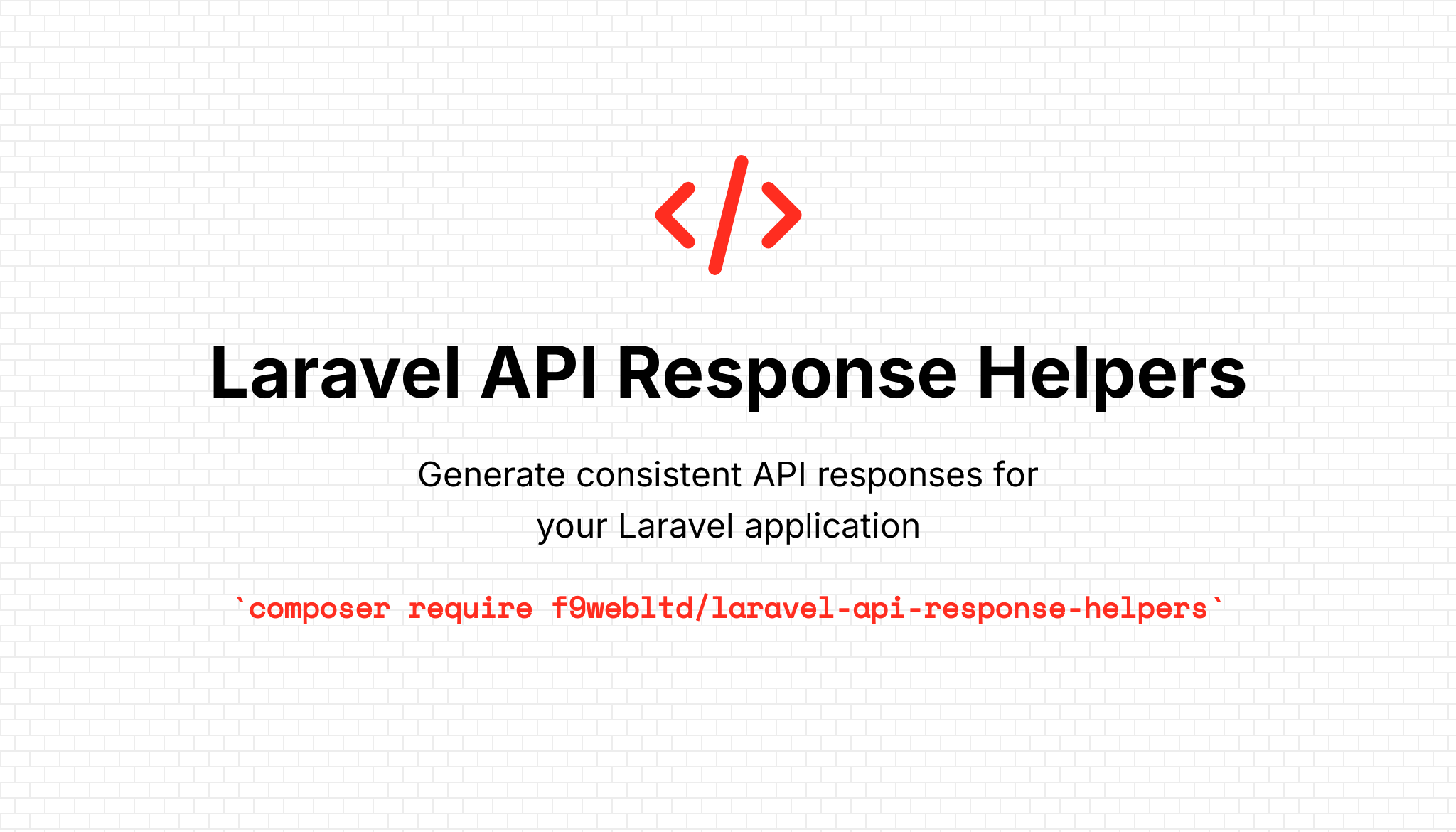A simple package allowing for consistent API responses throughout your Laravel application.
- PHP
^7.4 | ^8.0 - Laravel 6, 7 and 8
composer require f9webltd/laravel-api-response-helpers
Simply reference the required trait within your controller:
<?php
namespace App\Http\Api\Controllers;
use F9Web\ApiResponseHelpers;
use Illuminate\Http\JsonResponse;
class OrdersController
{
use ApiResponseHelpers;
public function index(): JsonResponse
{
return $this->respondWithSuccess();
}
}Optionally, the trait could be imported within a base controller.
Returns a 404 HTTP status code, an exception object can optionally be passed.
Returns a 200 HTTP status code, optionally $contents to return as json can be passed. By default returns ['success' => true].
Returns a 200 HTTP status code
Returns a 401 HTTP status code
Returns a 403 HTTP status code
Returns a 400 HTTP status code
Returns a 201 HTTP status code, with response optional data
Returns a 204 HTTP status code, with optional response data. Strictly speaking, the response body should be empty. However, functionality to optionally return data was added to handle legacy projects. Within your own projects, you can simply call the method, omitting parameters, to generate a correct 204 response i.e. return $this->respondNoContent()
Optionally, replace the default ['success' => true] response returned by respondWithSuccess with $content. This method can be called from the constructor (to change default for all calls), a base API controller or place when required.
setDefaultSuccessResponse is a fluent method returning $this allows for chained methods calls:
$users = collect([10, 20, 30, 40]);
return $this->setDefaultSuccessResponse([])->respondWithSuccess($users);Or
public function __construct()
{
$this->setDefaultSuccessResponse([]);
}
...
$users = collect([10, 20, 30, 40]);
return $this->respondWithSuccess($users);In addition to a plain PHP array, the following data types can be passed to relevant methods:
- Objects implementing the Laravel
Illuminate\Contracts\Support\Arrayablecontract - Objects implementing the native PHP
JsonSerializablecontract
This allows a variety of object types to be passed and converted automatically.
Below are a few common object types that can be passed.
$users = collect([10, 20, 30, 40]);
return $this->respondWithSuccess($users);$invoices = Invoice::pending()->get();
return $this->respondWithSuccess($invoices);This package is intended to be used alongside Laravel's API resources and in no way replaces them.
$resource = PostResource::make($post);
return $this->respondCreated($resource);Ensure consistent JSON API responses throughout an application. The motivation was primarily based on a very old inherited Laravel project. The project contained a plethora of methods/structures used to return an error:
response()->json(['error' => $error], 400)response()->json(['data' => ['error' => $error], 400)response()->json(['message' => $error], Response::HTTP_BAD_REQUEST)response()->json([$error], 400)- etc.
I wanted to add a simple trait that kept this consistent, in this case:
$this->respondError('Ouch')
Any ideas are welcome. Feel free to submit any issues or pull requests.
composer test
If you discover any security related issues, please email [email protected] instead of using the issue tracker.
The MIT License (MIT). Please see License File for more information.




